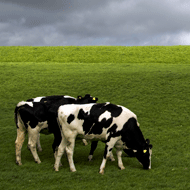
Prospect say closure may increase spread of infection
The proposed closure of a Scottish surveillance centre has been criticised by Prospect, a trade union for engineers and scientists.
Earlier this month, Scotland's Rural College (SRUC) announced that it would be closing its veterinary disease surveillance centre in Inverness by autumn 2015 as part of plans to cut costs.
Prospect argue that SRUC has made no provision for relocating the laboratory, meaning that farmers in the Highlands will have to transport carcases hundreds of miles to the next nearest labs in Perth, Thurso or Aberdeen.
Alan Denney, Prospect's national secretary, said: “The reason for examining these animals is to establish the cause of death – specifically whether it is the result of a contagious disease.
“If dead animals have to be transported over much greater distances this will increase the chances of spreading infection. Because of the extra time and effort involved, it may also mean that some animals will not get tested and we potentially miss an important early warning sign of an outbreak.
"This has implications for both animal and human health. If we get another major outbreak of foot and mouth the livelihoods of countless farmers could be threatened and the costs could amount to hundreds of millions of pounds. Unfortunately these closure plans suggest that past lessons have not been learned".
Prospect has also criticised the consultation, which is set to run until July 10, as well as levels of scrutiny.
“The consultation does not involve or address the concerns of the public," said Denney. "Furthermore, we’ve had an MSP turned away when making a planned, fact-finding visit to Inverness. "This is completely unacceptable – public money was used to build the lab and it is partly run on behalf of the Scottish government.”



 The veterinary mental health charity Vetlife is inviting the veterinary community to join it for a sponsored cold-water dip.
The veterinary mental health charity Vetlife is inviting the veterinary community to join it for a sponsored cold-water dip.